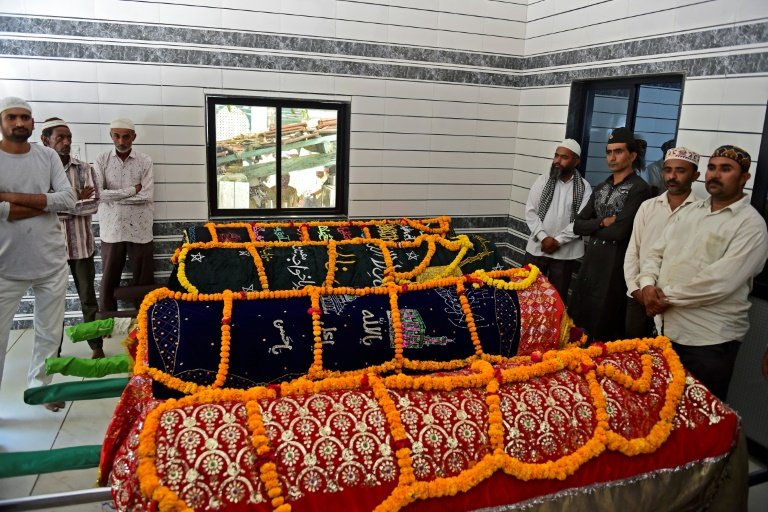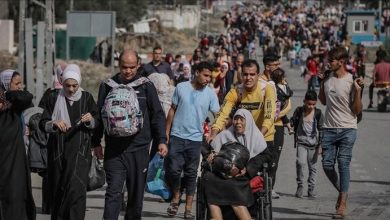Families line up to bury dead from India bridge collapse

There were so many dead that their families had to queue up to bury them.
Hundreds of mourners milled among the rows of graves at the Muslim cemetery in Morbi on Monday, a day after more than 130 people were killed in India’s worst bridge collapse in decades.
Relatives dug graves for their kin with the help of staff, as mourners tried to comfort each other and volunteers offered the grieving families water.
Some hugged each other, some cried, some mourned in silence as they waited their turn to lay the bodies to rest, with a shortage of coffins slowing the process.
The newly-renovated, nearly 150-year-old suspension bridge in the Gujarat town — a renowned tourist attraction — was packed with visitors when it collapsed on the last day of the Diwali holiday season.
Around 50 Hindu cremations were held on Monday, and 37 Muslim funerals were being carried out at the only Islamic cemetery in the district.

Around 50 Hindu cremations were held on Monday, and 37 Muslim funerals were being carried out at the only Islamic cemetery in the district / © AFP
Local businessman Rafiq Gaffar was burying two of his nephews: Nisar Iqbal, 21, and 12-year-old Arman Irfan.
They were close friends and had told their mothers they were going to the bridge. The family rushed to the site when they learned of the collapse.
“It was mayhem,” said Gaffar, 45. “People were crying and wailing. It was a scene from doomsday.
“There were bodies floating on the water everywhere and people trapped on the bridge who were frantically calling for help.
“We had no hope after witnessing the scenes. We were just hoping to see their bodies.”
They searched for the boys for eight hours, he said, but did not find them.
“Finally around six in the morning their bodies were fished out.

Rescue personnel conducted search operations through the night on Sunday and throughout the next day / © AFP
“Our family is devastated and it is difficult to overcome the loss.”
Arman was the eldest of three brothers, he added. “He was in school and was too young to die.”
Nisar had just started working at a spare parts shop and was helping to earn money for the family.
“He has a sister who is getting married next year but we don’t know what will happen now. It will take us ages, in fact our lives to come out of this tragedy.
“They were young and we have nothing left now.”
– ‘Broken and shattered’ –

More than 130 people were killed when the colonial-era bridge — recently reopened after being repaired — collapsed in India’s western Gujarat state / © AFP
The bridge had just re-opened after a months-long renovation and reports said it had not had proper approvals.
Nine people from the management firm that ran it were arrested Monday on suspicion of culpable homicide not amounting to murder, police said.
“The government is clearly at fault,” said Gaffar. “Our lives were reduced to the mere 15 rupees (18 US cents) that the government earned from the tickets.
“We don’t expect any justice. The powerful rule this country and the poor suffer. No one will ever be held responsible for the deaths.”
Qadir Bhai Sama, 80, had fond memories of regularly taking his grandson to the bridge as a child.
Now 17, Sahil Dilawar Sama went to it for the last time on Sunday, with three friends.
“He promised his mother he would be back in two hours but the next day only his body returned,” said Sama.

The bridge had just re-opened after a months-long renovation and reports said it had not had proper approvals / © AFP
Of the three friends who accompanied him, one also died and the other two were hospitalised, he added.
“They were close to each other and even tried to save each other.”
The official in charge of the graveyard, Mohammad Toufeeq, 40, said his staff had been working without a break to help the victims’ families.
“We haven’t slept or eaten anything since last night,” he said. “The entire area is in mourning.
“We feel broken and shattered. There are no words to describe the loss and I think there’s nothing which will ease our pain.”





